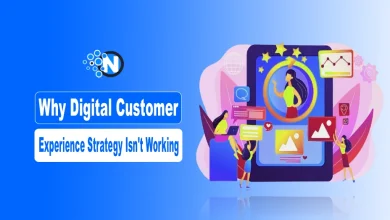The Shift to Digital in Chicago – What It Means for Your Files, Photos, and Future

What happens to a city’s history, productivity, and potential when everything stays on paper? Across Chicago, businesses, institutions, and families are answering that question by shifting to digital tools and storage.
From small law offices to public libraries and home-based entrepreneurs, the move away from filing cabinets reflects a deeper transformation, one driven by the need for efficiency, security, and long-term preservation. Digitization is no longer optional in a city that values both innovation and its historical roots.
In this blog post, let’s see what the shift to digital in Chicago means to your files, photos, and future.
The Push to Go Digital in Chicago
All around Chicago, small and big businesses are deciding to replace traditional paperwork systems with computer-based systems and storage. Offices that use file cabinets and take up a lot of space are converting to cloud services to organize staff, customer, and other operational papers.
Even peg shops are going digital on receipts, contracts, as well as inventory records to remain competitive and organized. This is not a trend in one industry. It can be seen throughout the professions of a legal practice, healthcare providers, educational institutions, and independent contractors.
Changes are also being observed in the public sector. School districts, local government offices and even libraries have been migrating to digital archives to be more efficient and open. This transition continued to be more rapid during the pandemic, where remote access was necessary to sustain the processes.
The change is no longer a question of necessity, but the long term advantages in terms of convenience and savings that the use of digital systems provides. Archiving case records or digitization of the city permits, Chicago institutions are investing in digital infrastructure to allow the city to provide safer, faster, and more comfortable operations.

Digitizing Old Media
Across Chicago, many people are realizing that digitization isn’t just about efficiency, it’s about preservation. Historic documents, aging photo albums, old videotapes, and audio recordings are all at risk of deterioration.
Paper can yellow and tear, film degrades, and magnetic tapes lose data over time. Digitizing these materials is a way to protect them before they’re lost forever, especially for families, artists, and community historians.
Cultural organizations and local historians are increasingly working to preserve the city’s collective memory through digitization. Many rely on partners such as a local Chicago digitizing service to safely convert fragile media into accessible digital formats. From neighborhood archives to personal scrapbooks, these efforts help ensure that Chicago’s rich history remains accessible.
Even on a personal level, people are digitizing family media so it can be shared online or stored in multiple locations. This makes it easier to pass down stories and memories without worrying about damage, theft, or loss over time.
Why Digitization Isn’t Just for Big Businesses
Small businesses and individuals now also play a bigger role in digital transformation, while big companies are showing greater examples. Most of the local business owners and freelance workers are going through the receipts, customer contracts, and tax paperwork to de-clutter their space and streamline operations.
Digitization helps them stay organized, compliant, and minimize losses in case critical paperwork is lost. It is best used by people in shared environments or active environments, where there is not much space to store things.
Families in Chicago are also realizing the benefits of digitizing physical resources. Old photo albums and handwritten letters, VHS tapes, and even cassette recordings are converted into digital format to keep their memories and share them with their relatives easily.
Aged materials are vulnerable to fading or illegibility, so digitization provides a time-saving solution to preserving personal history to pass on to subsequent generations. It is not a business decision anymore. It is a personal one that portrays the way life is being driven into digital technology day by day.
Top Benefits of Going Digital
Efficiency and Time Savings
Digital systems significantly reduce the time spent searching for information. With a few keystrokes, users can retrieve documents that might have taken hours to locate in a physical archive.
This speed is particularly valuable in time-sensitive industries where responsiveness is crucial. It also frees up employees to focus on productive work rather than paperwork.
Security and Backup
Physical documents are vulnerable to theft, fire, and water damage. Digitizing important records and storing them in encrypted environments reduces the risk of loss and allows for automated backups.
For professionals handling sensitive client or patient data, this added layer of protection is essential for compliance and peace of mind.
Scalability for Growing Businesses
As a business grows, so does its need for document management. Digital storage scales effortlessly, unlike physical systems that require more space, furniture, and organization.
This allows growing Chicago businesses to handle more data without the burden of reorganizing their entire workflow.
Sustainability and Office Space Optimization
Reducing the use of paper not only benefits the environment but also lowers office costs. Going digital makes it easier for businesses to shift to hybrid or remote work models without being tied to filing cabinets or physical archives.
It’s a cleaner, more modern approach to running a business in this modern urban landscape.
Challenges and Risks of Going Digital
Even though there are benefits associated with going digital, it is not an easy task. Initial costs may be huge, particularly to companies that require scanning massive amounts of documentation or desire to purchase bulwark storage platforms.
There is also the time that is spent in setting up systems, training workers, getting everything indexed, and backing up. To others, the learning curve may turn out to be steep, especially with teams that are not familiar with digital tools.
And there is the serious issue of cybersecurity. Unless encrypted, the data stored in digital form may be open to hacking or unauthorized access, or inadvertent loss.
It only takes ineffective password hygiene, access controls, and back-ups to lose vital files as easily as a business could lose a physical paper folder. You must ensure that digitization is an unending process with the inclusion of regular updates, security review, and employee training, and not a project.
Summing Up
Is it worth holding onto the past if it risks being lost or forgotten? The paradigm shift observed in Chicago demonstrates that it is possible to retain information, enhance access and facilitate streamlining of work simultaneously.
Through digitizing, the businesses shore up their functioning, individuals preserve their histories and communities defend their common narratives. The shift can be work, but the benefits (clarity, continuity and connection) are worth the step.




